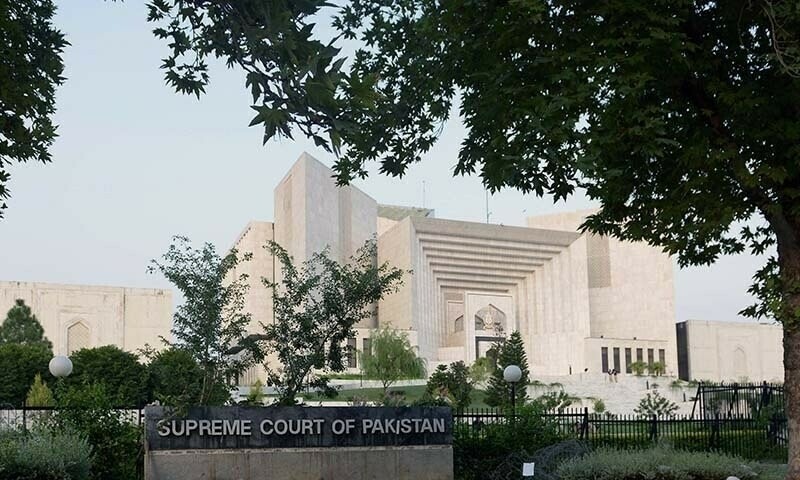
[ad_1]

ISLAMABAD: The Supreme Court was approached on Thursday against the 26th Amendment and for an inquiry by a judicial commission or any other forum to determine whether the two-thirds majority was voluntary or unlawful inducement was at play.
The petition was lodged by veteran politician Afrasiab Khattak through his counsel Khwaja Ahmad Hosain on Thursday two days after Justice Yahya Afridi was appointed as the chief justice of Pakistan in light of the newly promulgated tweaks.
The petitioner has also requested the Supreme Court to hear the petition by a full court and not by a constitutional bench to be established under the 26th Amendment. The petitioner challenged the constitutionality of such benches, saying they could not lawfully adjudicate on this matter.
According to the petition, the court should declare that no amendment to the Constitution can validly be passed where there were election disputes pending in respect of the status of such members whose vote was necessary to achieve the prescribed numerical threshold in Article 239 of the Constitution.
The petition also requested the apex court to strike down the entire amendment on the grounds of procedural impropriety if it is confirmed that the requisite two-thirds of the lawfully elected membership of each house did not freely exercise their right to vote in favour of the same as required by Article 239.
Alternatively, the petition pleaded that the court should strike down certain provisions of the 26th Amendment since they substantively undermined the independence of the judiciary. These provisions pertained to the annual evaluation of judges of the high court by the Judicial Commission of Pakistan (JCP) and the provisions relating to the appointment of the Chief Justice of Pakistan (CJP), as well as the formation of constitutional benches.
As a consequence, the court should declare that the original Article 175A(3) of the Constitution holds the field and order the federal government to notify the senior-most judge as the CJP.
The petition claimed that votes of certain members were procured through coercion or unlawful inducements and entire legislation should be annulled in case such means were used to procure the required majority.
In light of the fact that the 26th Amendment was passed by a razor-thin majority and there are election disputes pending in respect of the election of members, strike down the amendments if determined by election tribunals that two such members were not lawfully elected since that would mean the required constitutional threshold had not been achieved, the petition contended.
The petition said the manner in which the 26th Amendment was passed violated Article 239 of the Constitution since the ouster of Article 239(5) “does not engage to protect procedural impropriety or changes that violate the salient features of the Constitution”.
In any case, the changes made by the 26th Amendment were not “amendments” as they fundamentally were destructive to judicial independence and endorsed executive and legislative interference in judicial processes and appointments in a manner that was incompatible with independent decision-making, the petition said.
The petition feared that any system where the government was given a role in the selection of particular judges or benches to hear cases involving the government violated the salient features of the Constitution.
The amendments allowed cherry-picking of judges by the government for particular cases and allowed the government and legislature to punish judges based on their decisions, it added.
Allowing the constitutional benches to be constituted and changed “from time to time” undermined the security of tenure and was inconsistent with an independent judiciary and unlawful encroachment in the judicial arena, the petition said.
Published in Dawn, October 25th, 2024
[ad_2]
Source link






